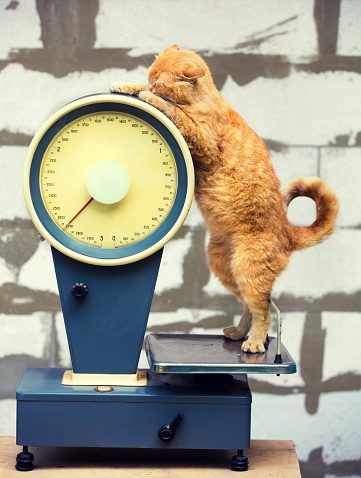
Obesity in cats is reaching epidemic proportions with more than half of U.S. cats overweight or obese. Overweight cats are more prone to disease, including diabetes (which can respond to a high protein, low carbohydrate diet in restricted amounts), arthritis (from too much stress on joints), as well as urinary tract and kidney problems (crystals and stones form when cats eat large quantities of dry foods with an inappropriate mineral balance). Being overweight or obese also increases a cat’s likelihood of heart and respiratory disease, high blood pressure and many forms of cancer, and lowers its life expectancy.
Diet
Cats need high protein diets. If a cat is fed a diet that doesn’t have the correct mineral balance, it can overeat trying to compensate for the mineral deficit. Substitute a portion of dry food with a daily serving of canned food and feed two meals a day with appropriate proportions.
Exercise
Though cats are by nature curious and athletic, if not stimulated indoors they become bored and sedentary which leads to weight gain. Encourage games with your cat such as chasing a ball, feather on a string or the dot from a laser pointer. Provide climbing towers and perches and put your cat’s dry kibble in a dispensing toy which drops out pieces of food as your cat bats and chases it or “hide” a few kibbles in multiple dishes around the house and change the locations regularly so your cat has to “hunt” everyday. Consider adopting another cat so the two can play and get stimulation and exercise this way.
The New Normal
Many people don’t even realize their cat is overweight because the image of what a “normal” cat looks like has changed over the years. This makes it hard to recognize when a cat is over-indulged. Look at the chart below. How would you rate your cat?

chart courtesy of catsgonehealthy.com
Recent Posts
About Us
Ann Arbor Animal Hospital is a locally-owned animal hospital operating for over 90 years in Ann Arbor, MI.
